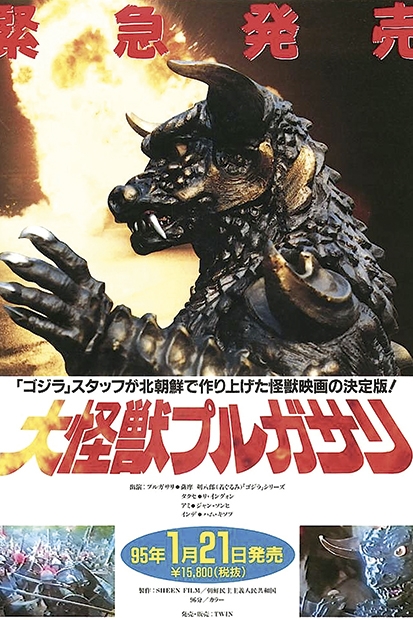Ahead of last year’s release of The Interview, the Seth Rogen film about two journalists instructed to assassinate Kim Jong-un, North Korea interpreted the film as ‘an act of war’. Sony Pictures were hacked by a group linked to North Korea and hundreds of humiliating titbits about spats between celebrities and Sony execs made public, most memorably the description of Angelina Jolie as ‘a minimally talented spoilt brat’. The film was first cancelled and then given a limited release. Kim Jong-un had the last laugh when the reviews came out, however. ‘About as funny as a communist food shortage, and just as protracted,’ said Variety.
What got lost in the backdrop to The Interview, though, was the significance of North Korea’s attitude towards cinema. Paul Fischer’s eye-opening and addictive book provides the missing context. North Korea has a history of being extremely, let’s say, proactive in its attitudes towards film-making. Here Fischer tells the story of how in the late 1970s Kim Jong-un’s father, Kim Jong-il, became so obsessed by the idea of making the perfect film that he ordered the two most talented stars in South Korean cinema to be kidnapped so that they could come and work for him.
Kim Jong-il, the pampered son of an unquestioned leader, grew up with a passion for cinema and for Hollywood in particular. He called in thousands of films from North Korean embassies around the world and was in most cases the only person in North Korea to watch them, seeing as they were banned. In search of a role in the elite (where his succession was not guaranteed), he hit upon the idea of becoming a brilliant film propagandist and set up his own studio.

Meanwhile, in South Korea, a homegrown film industry flourished, thanks to the talents of one golden couple. Imagine Meryl Streep married to Steven Spielberg and you have some idea of how award-winning director Shin Sang-Ok and actress Choi Eun-Hee were regarded in their heyday in the 1960s. These were the two people Kim Jong-il decided he had to work with. He just needed to have them kidnapped.
Choi Eun-Hee disappeared first, in 1978. She and her husband, who had directed her in many films, were recently divorced. In isolated North Korea Kim Jong-il was possibly unaware that their moment in the sun in South Korea was passing: Shin Sang-Ok’s film studio was facing financial problems. Choi Eun-Hee was lured to Hong Kong with a bogus offer of work. According to her account, she was kidnapped while being taken on a trip to meet a businessman. She woke up on a freighter bound for North Korea, a portrait of Kim Jong-il smiling down on her. Several months later, Shin Sang-Ok, investigating his estranged wife’s disappearance in Hong Kong, also vanished.
The two did not meet in North Korea until five years later, by which point both had experienced very different treatment. Both had been ‘re-educated’ (they faked indoctrination). Shin Sang-Ok had spent most of his time in prison in solitary confinement, whilst Choi Eun-Hee was kept in isolation but in relative luxury.
Once Kim Jong-il was confident that they were both loyal to his regime, he brought them together at one of the cognac parties that Choi Eun-Hee was occasionally called to. Over the next three years, the actress and director fell back in love with each other and made a series of movies to please Kim Jong-il. Shin Sang-Ok was convinced that if he could make a break-out hit to attract international attention, they would be given the opportunity to attend an international film festival or even set up an office abroad. Then they could ‘defect’.
By 1986 he had hit upon the perfect idea: Pulgasari, a monster movie to rival Japan’s Godzilla. It succeeded, and the dream trip to Vienna came up. After a car chase worthy of the James Bond movies so loved by Kim Jong-il, Choi Eun-Hee and Shin Sang-Ok finally escaped their captors and sought political asylum at the US embassy.
Choi Eun-Hee is now in her late eighties and living in Seoul. Shin Sang-Ok died in 2006. As Fischer readily admits, while North Korea is so closed off we only have their account to go on. Some still believe that the two voluntarily went over to North Korea. But Fischer has done everything he can to check their story out and he concludes, ‘I am strongly inclined to take what Shin and Choi say as truthful.’ Anyone reading this lively, compulsive and profoundly weird account will feel the same way.






Comments